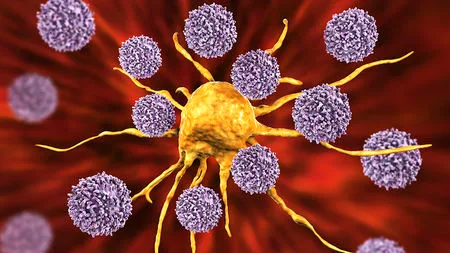Also read:10 WARNING SIGNS OF CANCER
The central role of diet
in increasing the risk and preventing the occurrence of cancer is well
documented.
Research indicates that 30% to 40% of all cancers can be prevented
by lifestyle and dietary measures. Although no diet has been demonstrated to
cure cancer, eating a diet known to prevent cancer and avoiding foods and
dietary behaviors known to increase the risk of cancer is an extremely
important component of comprehensive care.
In general, the diet
should be high fiber, whole food based (the foods organically grown), rich in
fruits, vegetables, beans, seeds, etc. It should be low in
high-calorie, low-nutrient foods, such as junk foods, candy, and soft drinks.
Allium and cruciferous vegetables, especially broccoli sprouts, are beneficial.
10 Effective Diet For Cancer Patients
Here are some general guidelines that may be helpful for cancer patients:
1. Eat a variety of fruits and vegetables
Include a wide range of colorful fruits and vegetables in your diet, as they are rich in antioxidants, vitamins, minerals, and fiber. Aim for at least five servings per day.
2. Choose whole grains
Opt for whole grain products like whole wheat bread, brown rice, quinoa, and oats, as they provide more nutrients and fiber compared to refined grains.
3. Include lean protein sources
Include lean protein sources such as skinless poultry, fish, beans, lentils, tofu, and low-fat dairy products. Protein is essential for tissue repair and immune function.
4. Focus on healthy fats
Include sources of healthy fats in your diet, such as avocados, nuts, seeds, and olive oil. These fats provide essential fatty acids and help with nutrient absorption.
5. Stay hydrated
Drink plenty of fluids, such as water, herbal tea, and clear soups, to stay hydrated. Adequate hydration supports overall health and helps with side effects like dry mouth or dehydration due to treatment.
6. Avoid processed and red meats
Avoid consumption of processed meats (e.g., bacon, sausage, deli meats) and red meats (e.g., beef, pork, lamb), as they have been associated with an increased risk of certain cancers.
7. Avoid sugary and processed foods
Stop sugary drinks, desserts, and processed snacks, as they provide empty calories and can contribute to weight gain. Opt for whole food alternatives instead.
8. Consider small, frequent meals
If you experience appetite loss or digestive issues, eating smaller, more frequent meals throughout the day may be more manageable. Focus on nutrient-dense foods to maximize nutritional intake.
9. Manage side effects
Cancer treatments can cause side effects like nausea, vomiting, and taste changes. Work with your healthcare team to manage these symptoms and find suitable dietary strategies to address them.
10. Individualize your diet
Every person's nutritional needs are unique. Consider working with a registered dietitian who specializes in oncology nutrition to develop an individualized plan that takes into account your specific condition, treatment plan, and personal preferences.











